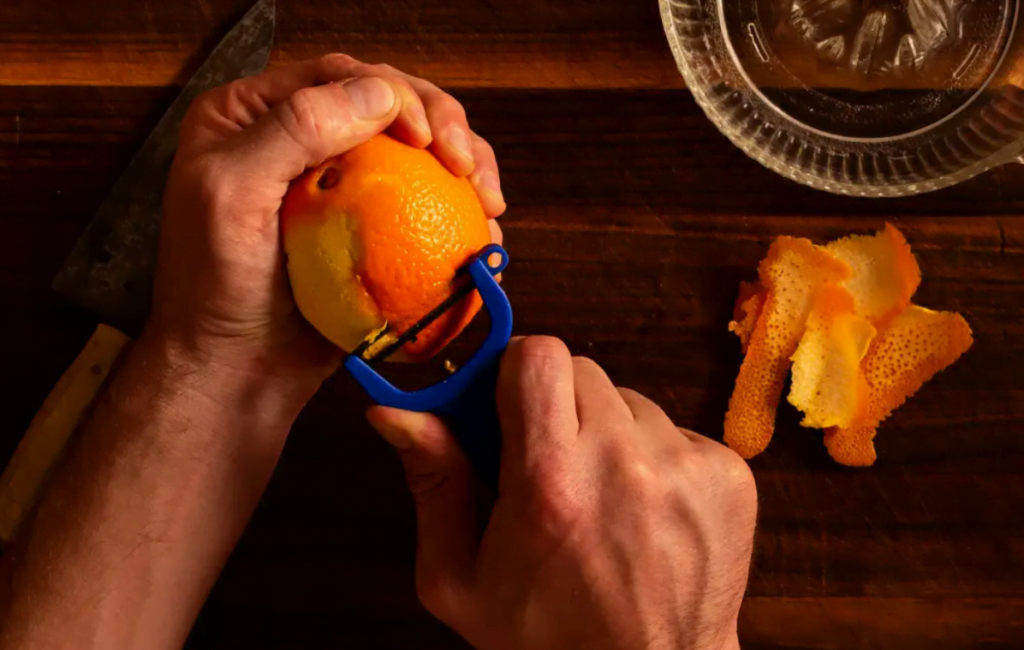While the search for companionship has been the primary human instinct since ancient times, the modern dating spectrum has been wildly influenced by the latest trends in social media. The viral ‘orange peel theory‘ originated on TikTok, where people ask their partners to peel an orange for them; is one of the most popular trends for gauging the sincerity of a relationship.
Can peeling an orange indicate whether or not your partner loves you? Well, let’s dive deeper into the nuances of this viral trend, which has spread to various other platforms and claims to be a perfect parameter of a healthy relationship.
What is the orange peel theory and the psychology behind it?
According to Time, it all began with a TikTok video of an ex-couple’s text conversation. During the series of texts, one of the partners discussed peeling oranges for the other while they were together. TikTok users took advantage of the opportunity to share other small gestures that their partners made for them. Soon, many people began sharing videos of themselves asking their partners to peel an orange, sparking the now-viral trend. Several people mentioned that the theory also applies to non-romantic relationships.

Asking your partner to perform the mundane task of peeling an orange demonstrates how much they love and care for you. If they choose to do it without hesitation, they are madly in love with you; if they do not, your relationship is doomed.
Asking your partner to perform the mundane task of peeling an orange demonstrates how much they love and care for you. If they choose to do it without hesitation, they are madly in love with you; if they do not, your relationship is doomed.
At first glance, this theory appears to be completely harmless, or perhaps even oversimplifies a simple act of service, almost glorifying it. It indicates that if your partner is thoughtful enough to complete this task, they are the ideal partner. But is it so simple to assess romantic relationships and what they stand for?
According to the trend, an individual’s willingness to perform the task can demonstrate their commitment to their relationship. Kate Truitt, a board-certified psychologist and applied neuroscientist, told HuffPost that the orange peel theory emphasises the idea that small acts of service are about what they represent in the relationship rather than the action itself. They convey care, love, and commitment, and repeating the act improves the overall health and happiness of the relationship. These gestures, which are often simple and appear mundane, are critical in cultivating a loving, supportive, and long-lasting relationship.
The bare minimum of modern dating standards
The concept of “the bare minimum” has been a hot topic in recent months, with numerous lists and bullet points. They must put forth significant effort. Some attribute this to acts of chivalry, while others to a simple act of kindness. Whether it’s holding the door open, paying for dinner, complimenting, making the reservation, arriving on time, or bringing flowers, the guy must demonstrate that he values you and your time. This bare minimum standard has become a codified matter of honour.
If you want to date and have a social media presence, you’ve probably seen videos outlining what behaviours you should and shouldn’t tolerate from them. These are mostly shared by women who have been there, done that, and feel compelled to share their hard-earned wisdom with those who are less experienced.
Dating (men) in this strange and difficult modern age requires some caution, especially if your parents did not model healthy relationship dynamics growing up. And, while therapy is essential for becoming an emotionally intelligent adult, it is not available to everyone, so the next best thing is the Internet influencers who recount the dos and don’ts of dating.
Is orange peel theory irrational?
The orange peel theory is based on the psychological principle that subtle acts of service in a relationship can be beneficial to its health. It ‘tests‘ your partner’s ability to be sensitive to your needs and desires. This theory claims that if your partner is willing to accommodate your smallest needs, they are empathetic to you and love you unconditionally.

In a TikTok video, a girl named Ruchi says, “If your partner reacts negatively to peeling an orange, it does not mean they do not care about you. It encourages the generalisation of an act of service that can manifest differently for each individual.”
What if your partner prefers making your morning coffee but dislikes peeling oranges? The orange peel theory oversimplifies a multifaceted concept like a relationship, which is not black and white.
Internet dating trends like the orange peel theory may appear to be fun on the surface, but they cannot determine the future of relationship. It is problematic when you’re constantly trying to subject your partner to these Internet dating trends and testing them to gauge how they feel about you, it creates a toxic environment. The concept lays stress over ‘passing‘ the parameters of being a green flag which triggers people’s fear of abandonment. The orange peel theory, like most dating trends, fails to account for diverse personalities, situations, and love languages.
Other stranger trends include the ketchup challenge entails squeezing ketchup onto a work surface at random and instructing your partner to clean it up. According to sex and relationship psychologist Charisse Cooke, relationship tests are not truly fair because they do not consider context, the situation, personality, or another person’s intentions and motivations. She does see one potential application for them, however. They can be useful if we tend to downplay issues in our relationships and deny some of their negative aspects.
A test can bring to light unhealthy or abusive attitudes or behaviours in a relationship. Social media has led to the advent of unhealthy standards and parameters for testing the depth and compatibility of relationships, making us forget the true ideals of what a healthy relationship looks like.
Healthy methods of evaluating relationship
Healthy ways to evaluate your relationship include work, mindfulness, and presence of mind. Observing how effectively and honestly you can communicate with your partner, and resolving conflicts with mutual trust and respect should be in major light.
Feeling heard and safe in a relationship is what matters the most. It is important to remember that having an honest conversation about your relationship can be difficult and uncomfortable, but it’s necessary for its growth and health.
Instead of blaming or attacking your partner, express your feelings through “I” statements. Remember to actively listen and validate your partner’s feelings. By having an open and honest conversation, you can work together to strengthen your relationship and resolve any issues that may arise. If you share the same values and goals as your partner, and you feel emotionally secure with them, these inadequate tests are unnecessary.
Using the Orange Peel Test in a relationship entails focusing on the positive aspects, communicating openly about needs, and understanding each other’s perspectives. However, it is critical to recognise that examining one aspect, such as peeling an orange, does not provide a complete picture of the relationship; it is the combination of good and bad elements that define the relationship as a whole.






